

In the English royal family, the Prince of Wales is like the baseball batter in the on-deck circle. The prince must wait for the current batter to complete his swings at bat and get out of the way. Not surprisingly, the current ruler may not enjoy contemplating "getting out of the way," since that will occur by the ruler's death.
While open opposition to the king was not wise, there was always some form of opposition. The Magna Carta had empowered Parliament and the king/queen did not have total control over the government. In particular, the monarch needed Parliament's support for raising money through taxes. Inevitably, some of the gentry in England would be rewarded and others would be impacted by those taxes.
A personal relationship with the monarch could protect one's wealth, or cost a life. Sir Walter Raleigh experienced kindness and favors, but also punishment from Queen Elizabeth I.
For those who were not in favor with the current monarch, the only legitimate way to object to royal decisions was to be allied with the next king. During the reign of King George II the English political parties had not fully emerged, and opposition to the king tended to gather around the Prince of Wales to avoid being accused of threatening the monarchy itself. Allies of the king's son were somewhat protected.
King George II and Queen Caroline were not fond of their older son Frederick or his wife Augusta, the Princess of Wales. Friction between father and son was already a family tradition. When George II had been Prince of Wales, he had not gotten along well with his father George I.
In the early 1700's, George I recognized that his opponents had clustered around his son. George II saw the same process occur with his oldest son Frederick.
The royal family clearly favored the younger son Prince William, Duke of Cumberland, over Frederick, Prince of Wales. Queen Caroline, the mother of both, reputedly said she wished Frederick was dead:1
Frederick married Augusta of Saxe-Gotha in 1735. When she became pregnant, Frederick had Augusta moved to St. James Palace, with the intent of preventing his parents from having the traditional right of viewing the birth. Augusta ended up delivering her daughter in an improvised location, reportedly between two tablecloths.
The Queen, who was seriously ill, was appalled. Frederick and Augusta were banished from court, and Queen Caroline refused to see her oldest child again before she died several months later. Her judgment on her son was:2
The General Assembly still named two counties for Frederick and Augusta in 1738.
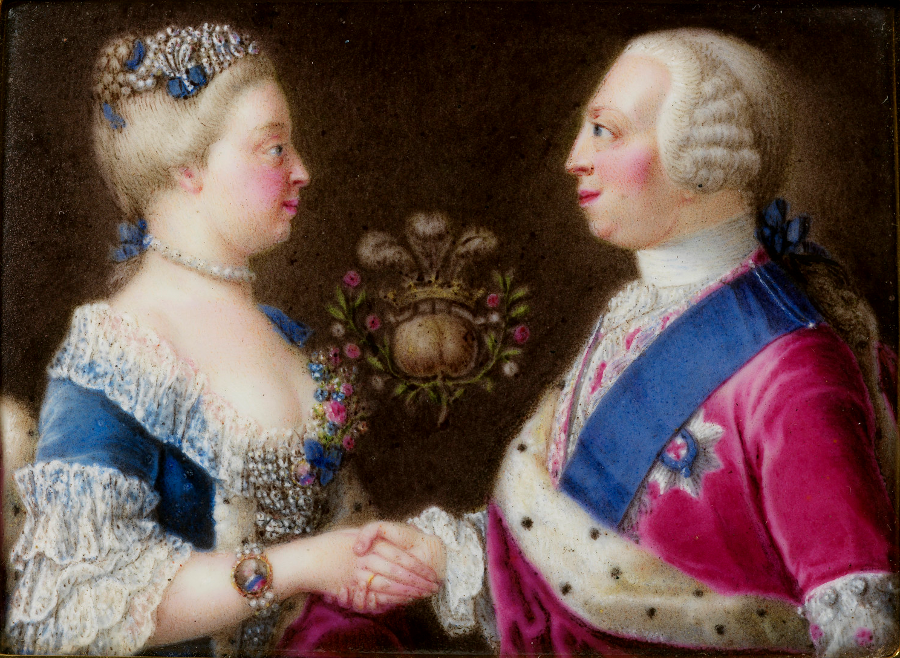
Augusta County was named for Princess Augusta, and Frederick County for Prince Frederick
Source: Royal Collection Trust, Frederick and Augusta, Prince and Princess of Wales (1758)
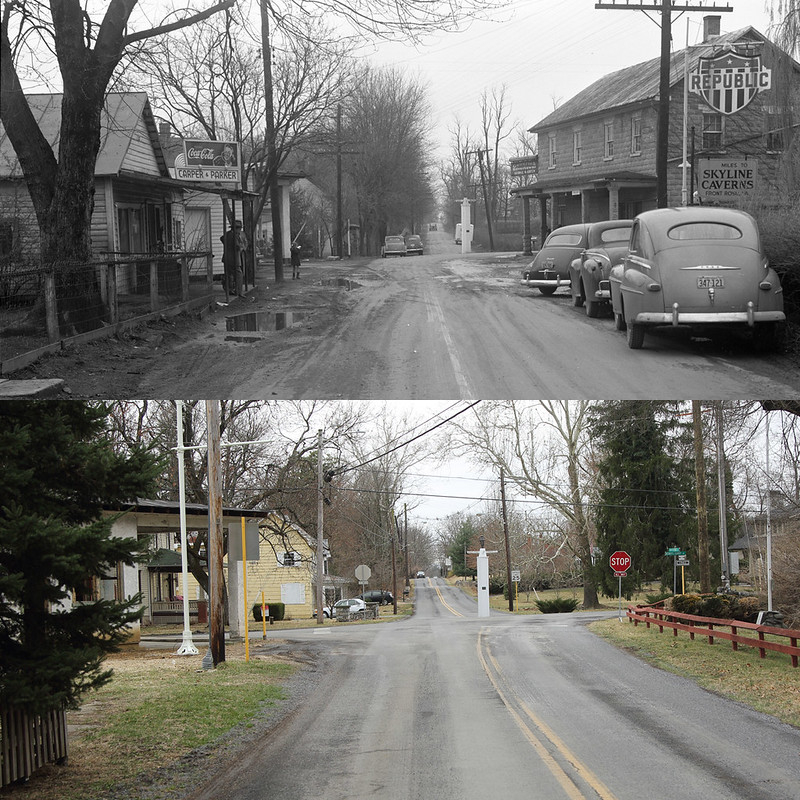
a white post in the highway has been a reference point since Lord Fairfax lived at Greenway Court
Source: Virginia Department of Transportation, White Post
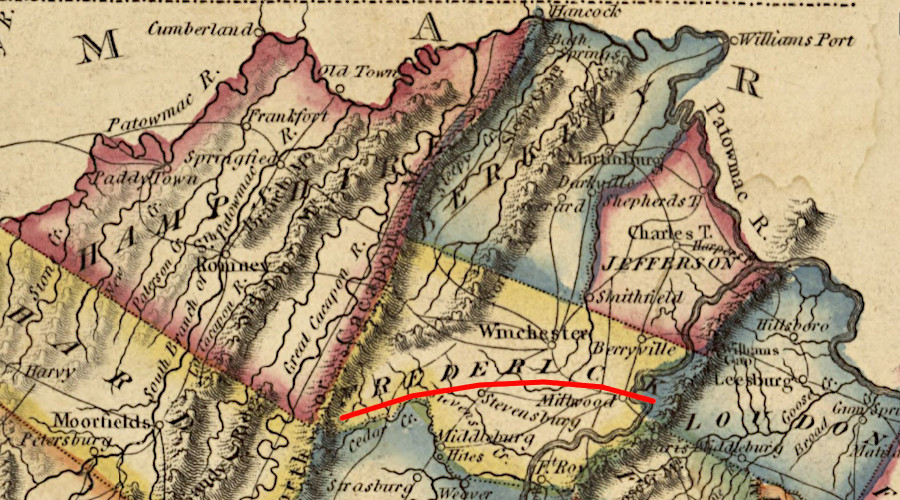
until 1863, Augusta County was not on the border of Virginia
Source: Library of Congress, A new and elegant general atlas, containing maps of each of the United States (by Samuel Lewis, 1817?)
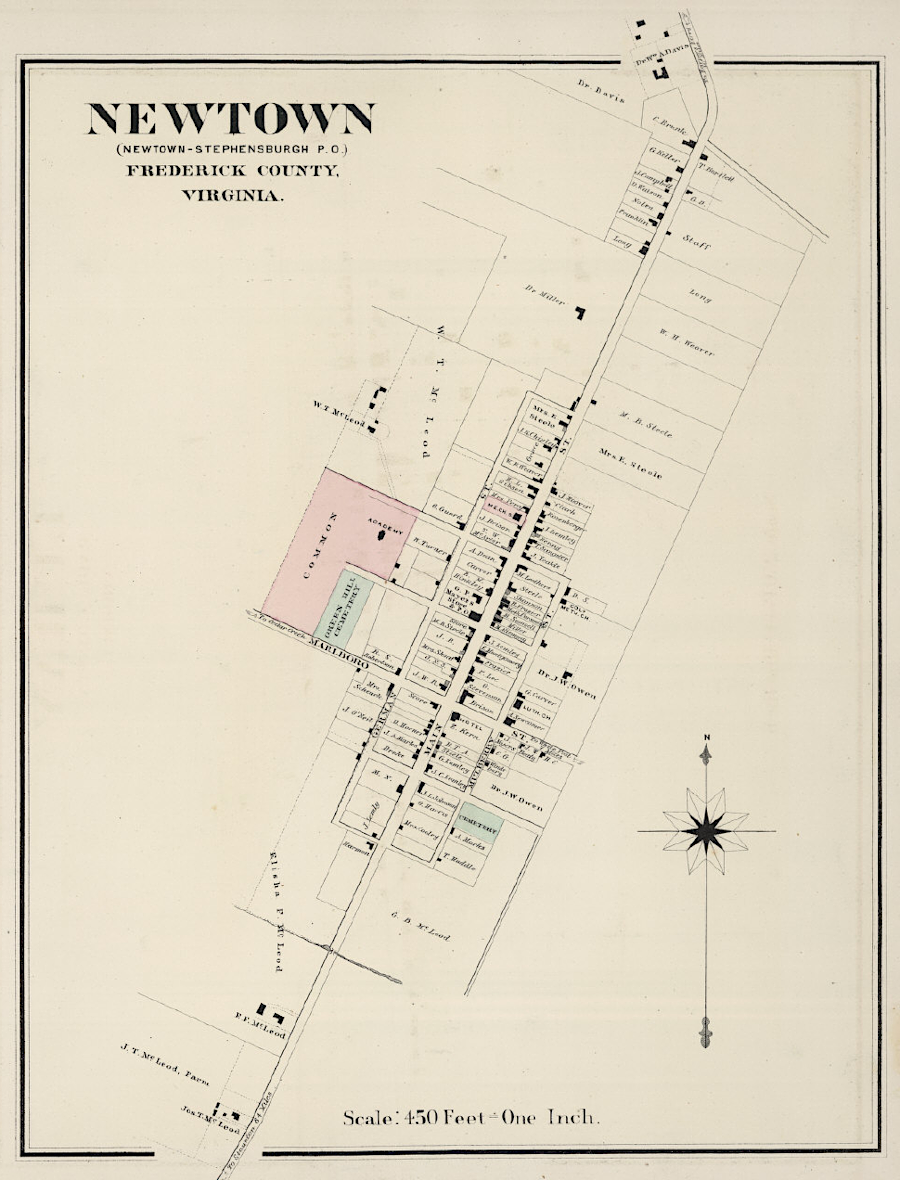
Lexington in 1878
Source: David Rumsey Map Collection, OW Gray & Son Atlas - Gray's New Map of Newtown, Virginia (1878)
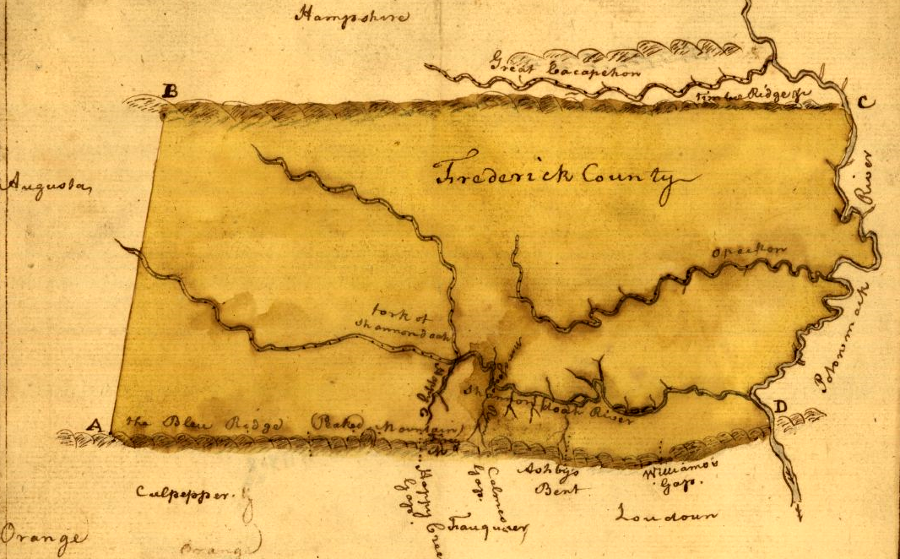
George Washington produced a 1769 survey of Frederick County, which was part of the Fairfax Grant
Source: Library of Congress, Map of the county of Frederick, 1769